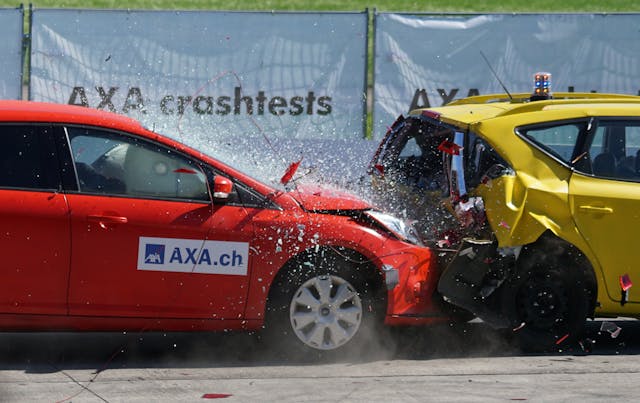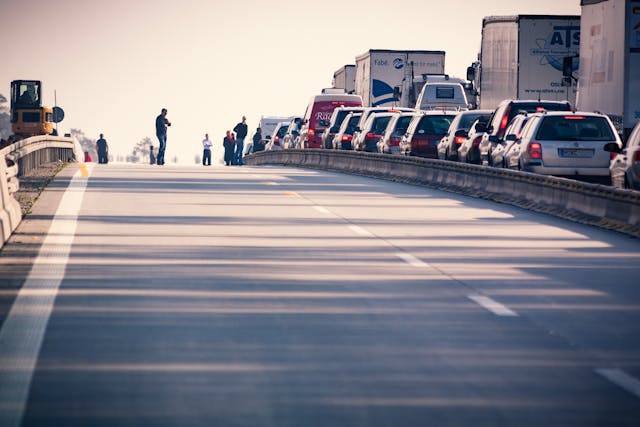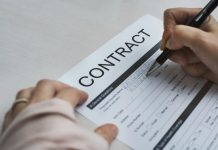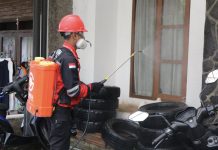Car accidents happen all the time, everywhere, and even though you obviously try to be as careful and cautious when driving as possible, sometimes other drivers are just reckless and a danger to everyone on the road, and you may end up in a collision. This certainly isn’t a desirable outcome and not exactly fun to talk about or even think about, but it is incredibly important that you know what you should do and not do after having been in an accident so that you can at least get some justice or compensation down the line, with the help of an attorney, of course. The financial responsibility for the collision usually falls to the party that caused the accident, but there are things you have to do, watch out for, and avoid to make sure you don’t get blindsided or get caught up in a legal web in court. Luckily, here are some basics to give you an overview.

Call your Lawyer and the Police
The first thing you want to do after an accident is call the police and a lawyer, and even though that should be rather obvious, people often just don’t call them, even though the officers that arrive on the scene can collect valuable evidence, witness accounts, and the like that can really work in your favor. The same goes for your attorney, except that he is on your side from the get-go. The police aren’t there to help you build a case, but a board-certified trucking attorney will be there to help you get compensation, and the work of the police can be incredibly valuable as a sort of launching point for your recovery claim. They are responsible for tracking down witnesses, taking photographs, examining the scene of the accident, collecting evidence that no one else can duplicate, and providing a crash report that concisely documents all the critical information related to the accident.
In addition, if the other party gets a traffic ticket, it can be a great start to proving that they were at fault for the collision. If you do not call anyone, the jury, insurance companies, and the like may start asking why you did not think of asking for an investigation, if you were the injured party. So, call the cops and the right attorney pronto.
Don’t Apologize
Another mistake people make is admitting guilt, as it is only natural for you to want to resolve things as quickly as possible by apologizing in an attempt to make yourself and others involved feel better. Don’t. Apologizing may be your first instinctive reaction, but it is very inadvisable after an accident, and in court, in front of a jury, everything that was said can be used against you, even if you did not even realize that you said something that might actually negatively impact your case, like apologizing and somehow seeming like the guilty party. Your best bet? Just don’t say anything to anyone; get a good lawyer and let him or her do all the talking. Also, don’t get aggressive or let the other party get under your skin and provoke you into saying or doing something stupid, even though they caused the crash. Stay calm, be reasonably polite, and don’t give in to your natural impulses.
Gather Evidence
If you or the potential other passengers in your vehicle have serious injuries that need medical attention, that takes priority, that goes without saying. Otherwise, start gathering evidence right off the bat so that your case is already being put together. Take photos of the scene, of the vehicles involved in the accident, of the damage to the vehicles, and of your injuries. Perhaps write down the names of any witnesses and their contact information. Usually, this is all done by the police, of course, but they may take time getting to the scene, miss a detail, or perhaps be busy with more important things. Whatever the case may be, you should do your best to gather all the pertinent evidence and give your lawyer a great place to start when they launch their full-blown investigation and open their case.

Go to the Doctor
Especially as men, we often choose to ignore injuries, bruises, or pain, choosing to “walk it off” instead. Don’t do that, especially after a collision. You might have internal injuries, the consequences of which you might not even notice until a lot later when you collapse or something of the sort. Not only should you go to the doctor for your own health, but it is also important that your physician document your injuries, making the paperwork clear evidence. As your claim for recovery comes from your verified, proven-to-exist injuries, it is not enough for you to just say that you got hurt; that will not hold up in court. The more concise and detailed record of your prognosis and injuries you manage to create, the better your recovery claim will be. Also, thoroughly documented and detailed injury records make it more viable and likely that the other side will agree to pay out a fair settlement to you without needing to go through a trial that may stretch out for years, a long and arduous process that no one, least of all you, wants to go through unless absolutely and unavoidably necessary.
Being in a car accident is nothing anyone wants for themselves, even if it is only a minor fender bender. Gathering evidence, talking to the police, calling a lawyer, taking pictures, and maybe having to explain how you are or aren’t hurt to the ambulance team is no one’s idea of the perfect day. However, if it does happen, you must know what to do, what not to do, who to call, and so on and so forth. Of course, there are a lot more things that you can and may need to do, but in most cases, once you have a capable and professional lawyer, you can just sit back and let them do all the talking and the work.












